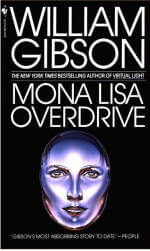 The year is 2044. Human civilization is hanging on by a thread. Recession, energy crisis, disillusionment, unemployment, starvation and poverty have reigned for decades. The only escape most people have is in a massive interactive simulation, the OASIS. The OASIS is also where most people work, a virtual universe with everything from shopping malls to space monsters. Thirteen year old Wade has grown up in a slum and has nothing to show for himself but being a geeky kid with some computer skills when OASIS co-founder and creator James Halliday dies, leaving his entire multi-billion dollar fortune and control of his company to the winner of an elaborate and mysterious quest throughout the OASIS. During the next five years, Wade becomes one of millions of “gunters”, short for “egg hunters”, trying to crack the quest and win the prize, fittingly an “Easter Egg”. This mostly involves ridiculously extensive research into the pop culture of the nineteen-eighties, Halliday’s favorite decade, to the point that Wade can recite every line of dialogue of every popular movie of the day, sing along to every hit song, and win at every old arcade game. He also knows the most obscure details of Halliday’s life. Then one day, Wade makes a breakthrough.
The year is 2044. Human civilization is hanging on by a thread. Recession, energy crisis, disillusionment, unemployment, starvation and poverty have reigned for decades. The only escape most people have is in a massive interactive simulation, the OASIS. The OASIS is also where most people work, a virtual universe with everything from shopping malls to space monsters. Thirteen year old Wade has grown up in a slum and has nothing to show for himself but being a geeky kid with some computer skills when OASIS co-founder and creator James Halliday dies, leaving his entire multi-billion dollar fortune and control of his company to the winner of an elaborate and mysterious quest throughout the OASIS. During the next five years, Wade becomes one of millions of “gunters”, short for “egg hunters”, trying to crack the quest and win the prize, fittingly an “Easter Egg”. This mostly involves ridiculously extensive research into the pop culture of the nineteen-eighties, Halliday’s favorite decade, to the point that Wade can recite every line of dialogue of every popular movie of the day, sing along to every hit song, and win at every old arcade game. He also knows the most obscure details of Halliday’s life. Then one day, Wade makes a breakthrough.
Ready Player One is a fast-paced, exciting, page-turning thrill-ride which proudly displays its early Cyberpunk roots. As Wade progresses on his quest, he encounters both allies and rivals. In particular, a large and ruthless multinational corporation is aiming to take control of the OASIS by running an entire division of gunters and battling for the prize. The majority of the action takes places in the OASIS, providing a stark contrast to the bleak and impoverished world outside. In the real world, people are jobless and homeless, and even debt slavery is often a better option than freedom since at least it provides room and board. In the virtual world, the poor but skilled can be wizards and warriors, paladins for justice or evil villains. The virtual world affects the real one in worrying ways, however, and domination of the real one is very much tied to winning the battle for the virtual one. For our recluse hero, this is a shocking and painful realization. He is mighty in the OASIS, but really only a geeky and powerless kid in the real world. The transformation of Wade’s real self to match the heroism of his avatar is the true underlying quest in the book.
It is clear Mr. Cline did a lot of research on eighties pop culture himself. The entire novel is one big orgy of fanservice, specifically aimed at those fans who grew up in the eighties. As an avid consumer myself of John Hughes movies, old computer games and era music, it pushed all the right buttons. The question this: can a person who is not at least casually versed in eighties pop culture truly appreciate it? I would say yes. Even without understanding the myriad pop culture references, it is a great adventure novel, and an excellent metaphor for our despondent times. Just be prepared for the massive geek-outs.











